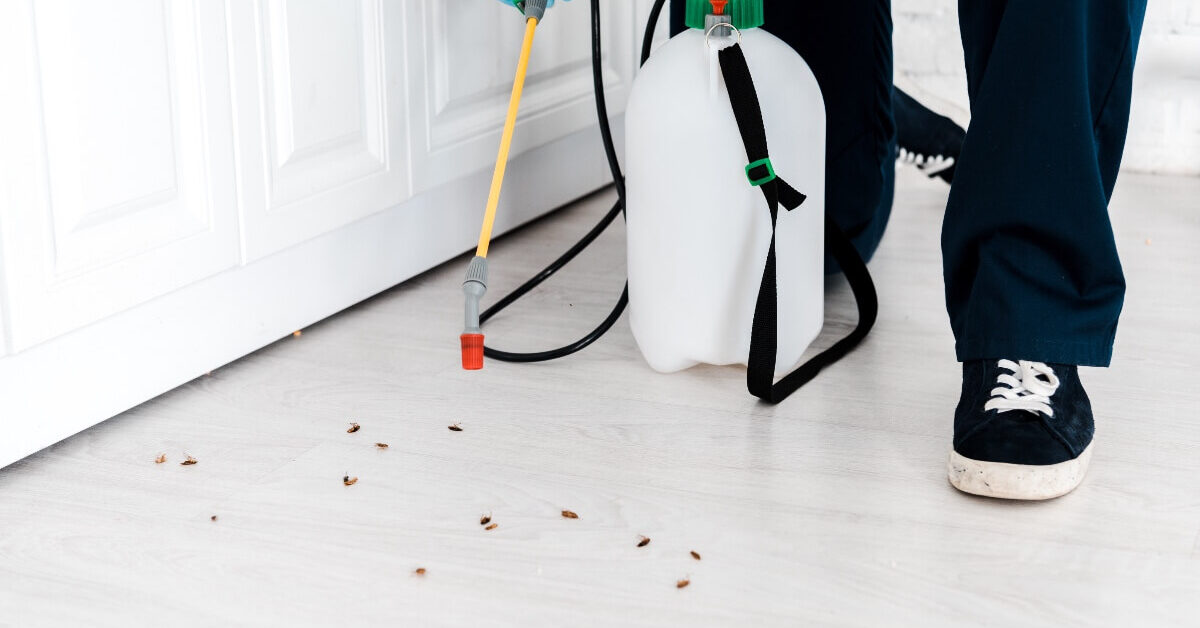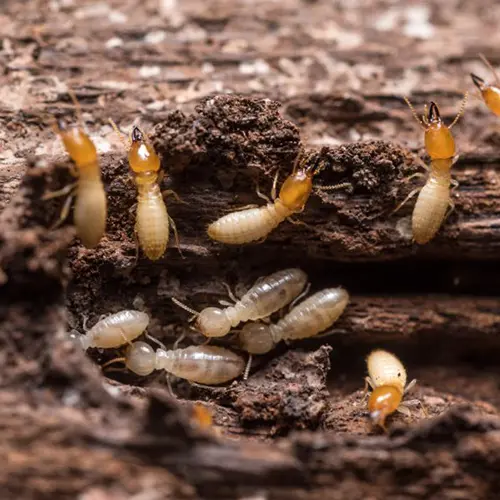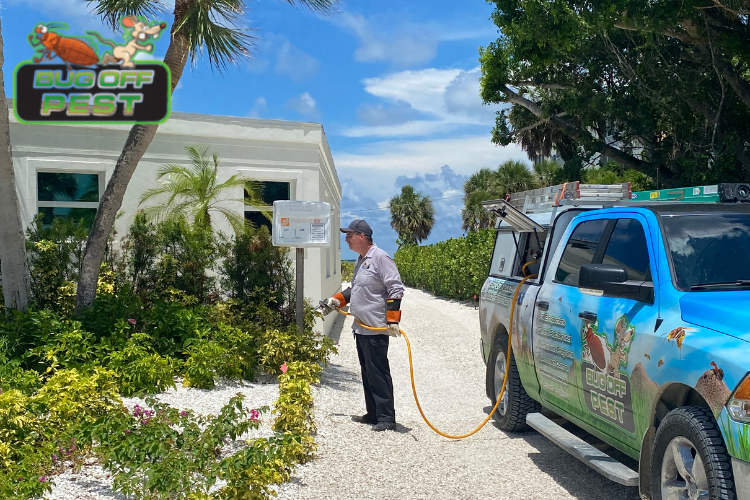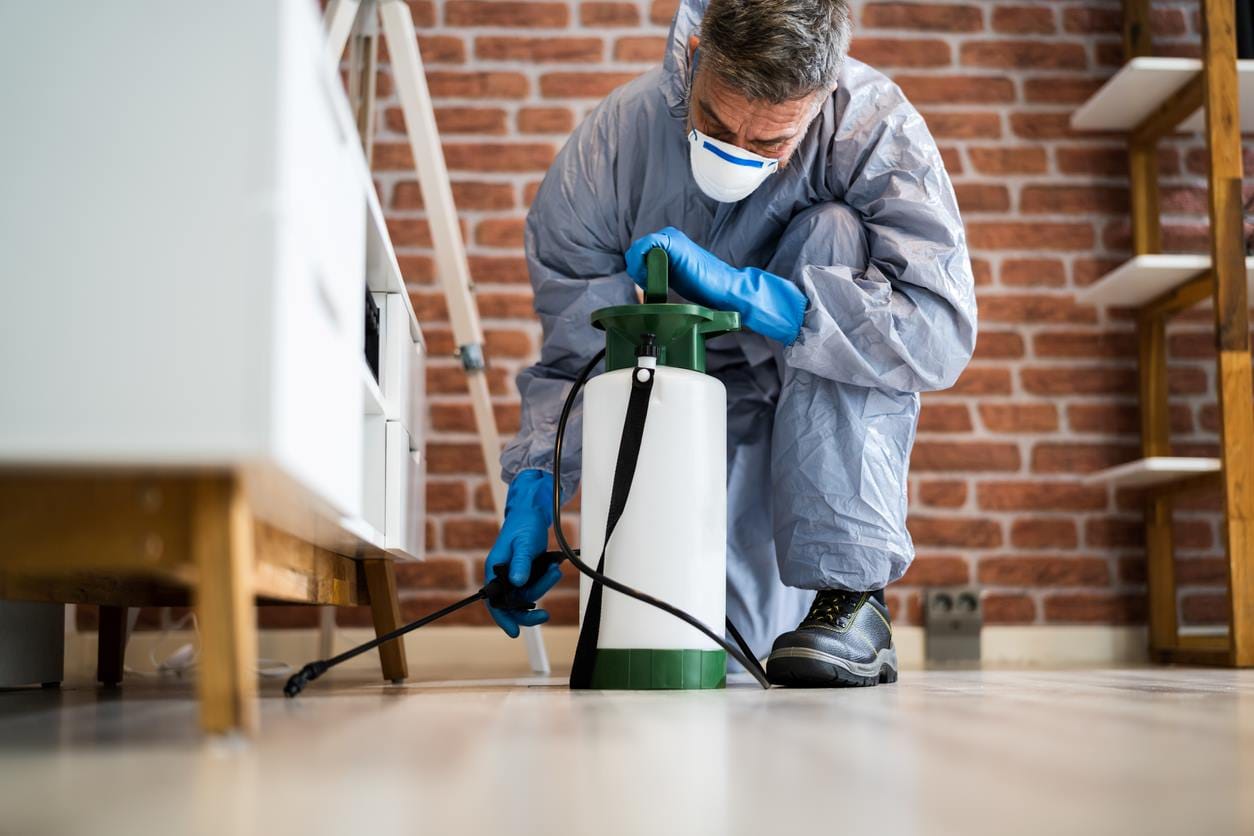Effective Termite Treatment Port Charlotte to Protect Your Property
Uncover the Value of Bug Control in Preserving a Healthy Atmosphere and Therapy Methods

The Role of Bugs in Communities
Pests, usually seen only as annoyances, play a multifaceted function in ecosystems that is essential for keeping environmental balance. They contribute significantly to different eco-friendly processes, including pollination, nutrition cycling, and pest control. For example, numerous insect species, such as butterflies and , are vital pollinators for a wide variety of plants, which subsequently supports biodiversity and food production.
Furthermore, parasites work as target for various predators, developing a critical link in food webs. This connection makes certain the survival of different varieties and helps regulate populations within environments (Termite treatment Port Charlotte). Decomposer insects, such as specific beetles and fungi, are critical in damaging down natural matter, therefore enhancing soil and assisting in nutrient recycling.
On the other hand, while bugs can be valuable, their overpopulation or intrusion right into non-native environments might interrupt these environmental features. This complexity emphasizes the value of recognizing bug characteristics, as efficient parasite monitoring methods need to think about both their environmental roles and potential effect on human activities. Balancing pest presence while minimizing injury is crucial for maintaining the stability of communities and guaranteeing farming efficiency.
Health And Wellness Risks Connected With Bugs
The existence of pests in numerous atmospheres prolongs past their environmental functions, as they also posture considerable health threats to pets and people. Many parasites, including rodents, parasites, and bugs, are service providers of diseases that can have significant health effects. Rats are understood to send hantavirus and leptospirosis, both of which can lead to severe breathing and kidney issues, respectively.
Bugs such as mosquitoes and ticks are notorious for spreading vector-borne conditions like jungle fever, dengue fever, and Lyme illness. These illnesses can lead to high morbidity and death prices, particularly in prone populaces. Additionally, insects like bedbugs and roaches can aggravate allergies and asthma, contributing to breathing troubles in people, especially those with pre-existing conditions.
Moreover, the visibility of pests can result in mental anxiety and pain, influencing total well-being. Contamination of food and surfaces by insect droppings and stays can cause foodborne ailments, highlighting the relevance of maintaining sanitary problems. Recognizing the wellness threats connected with bugs is important in acknowledging the requirement of efficient pest management approaches to guard animal and human health and wellness.

Advantages of Effective Insect Control
Efficient bug control is crucial for preserving a secure and healthy and balanced setting, as it continually mitigates the numerous risks connected with pest infestations. One of the primary benefits of effective pest management is the reduction of health hazards. Bugs such as mosquitoes, cockroaches, and rodents are vectors for diseases that can influence both pet dogs and human beings. By managing these populations, the possibility of condition transmission is considerably decreased.
In addition, effective bug control safeguards residential property and structures from damages. Lots of insects, like termites and woodworker ants, can trigger comprehensive architectural damage that might need pricey repair work. By proactively taking care of these infestations, home owners and services can safeguard their financial investments.
Another substantial advantage is the enhancement of total lifestyle. A pest-free atmosphere adds to mental well-being and minimizes stress associated with problems. Furthermore, efficient parasite control fosters a safer atmosphere for pets and kids, ensuring that homes stay shelters devoid of hazardous chemicals and disease-causing a fantastic read organisms.
Common Pest Control Techniques

In the realm of parasite administration, various strategies are utilized to fight problems properly. These methods can be broadly classified into 3 main strategies: cultural, pest eradication mechanical, and chemical controls.
Cultural control includes changing methods to reduce bug survival, establishment, and recreation. This may consist of crop turning, proper cleanliness, and environment manipulation, which collectively create an atmosphere less favorable to pest spreading.
Mechanical control utilizes physical techniques to remove bugs (Termite treatment Port Charlotte). Methods such as catches, vacuum cleaners, and obstacles are typically utilized to directly eliminate bugs from a location. This strategy is particularly effective for managing rodents and insects without making use of dangerous chemicals
Chemical control entails the application of chemicals to take care of bugs. These materials can be classified into herbicides, fungicides, and pesticides, each targeting certain sorts of bugs. It is critical to make use of these chemicals judiciously, sticking to safety and security standards and guidelines to lessen prospective harm to non-target species and the setting.
Each parasite control technique has its constraints and benefits, and commonly, an integrated method combining numerous techniques produces the best cause maintaining a pest-free setting.
Lasting Insect Management Practices
Lasting insect management techniques include a range of strategies made to lessen environmental influence while successfully controlling parasite populaces. These methods prioritize using eco-friendly techniques over chemical pesticides, thus reducing the danger of harm to non-target varieties, including valuable bugs, wild animals, and humans.
Integrated Parasite Administration (IPM) is a cornerstone of lasting practices, integrating biological, cultural, mechanical, and chemical methods to handle parasites. For instance, organic control involves presenting natural killers or bloodsuckers to reduce parasite populations. Cultural techniques, such as crop rotation and polyculture, interfere with pest life cycles and improve ecological community resilience.
Mechanical techniques, such as catches or obstacles, can effectively avoid bug accessibility pest control companies without chemical intervention. Furthermore, preserving healthy and balanced ecosystems with appropriate dirt management, plant health and wellness, and biodiversity can normally minimize parasite issues.
Education and understanding are crucial elements, encouraging communities and people to identify insect risks early and apply safety nets. Termite treatment Port Charlotte. By fostering an alternative method that balances insect control with environmental stability, sustainable insect administration methods not only safeguard frameworks and plants yet additionally add to a much healthier atmosphere for future generations
Final Thought

Understanding the wellness dangers associated with pests is critical in identifying the requirement of effective bug administration strategies to secure human and animal wellness.
Efficient pest control is crucial for preserving a safe and healthy setting, as it constantly mitigates the many risks linked with insect problems.Integrated Insect Monitoring (IPM) is a keystone of lasting methods, combining organic, social, mechanical, and chemical strategies to take care of insects. By recognizing the role of bugs, recognizing involved wellness risks, and utilizing diverse treatment strategies, a sustainable method to pest monitoring can be achieved. Integrated Insect Monitoring (IPM) emphasizes an alternative technique that mitigates damage to beneficial organisms while successfully controlling insect populaces.